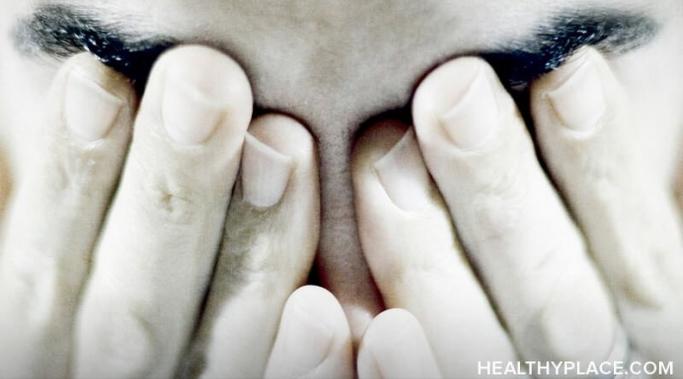Yesterday, Andi commented on Victims Think They May Be The Abuser. Andi said:
. . . I reached the point where I feared that the emotional / verbal abuse was going to move towards physical abuse. It has been a long time since this happened. I've moved far away and started over, but I'm still scared, feeling PTSD symptoms, and can't seem to move on. I want so desperately to be whole again. Any thoughts and help would be greatly appreciated.
Verbal Abuse in Relationships
The last post talked about why losing control of your emotions helps your abusive partner gain control of you. Trust me, I know how challenging it is to keep your composure when the verbal abuser is pushing your buttons! I've lost control of myself more times than I want to count. I've suffered shame after evaluating my reactions to abuse.
Our goal as targets of verbal abuse is to keep our emotions under our control which leads to a clear mind and conscience. There are ways to bring yourself down to earth and respect your emotions without losing respect for yourself. Living with abuse emotionally challenges you, but it doesn’t have to overcome you.
You, the target of verbal abuse, have one mission in your efforts to end verbal abuse: keep your emotions in check. Your verbal abuser subscribes to the opposite mission. Your abuser wants you to lose emotional control because when that happens, you've lost control of you. When you lose control of you, your abuser snatches control of the conversation and you.
Your response to verbal abuse can, technically, make you abusive -- at least in that moment. And I'm willing to bet that most anyone who has been on the receiving end of long-term verbal abuse tries to fight fire with fire at some point. It's almost impossible to not retaliate against verbal abuse with more abuse initially, in the time before you understand that you're in an abusive relationship and before you learn better ways to respond to verbal abuse. In my case, my abusive response to verbal abuse turned me into someone I didn't like at all.
Staring at this blank space, waiting for me to write something, reminds me of my days of abuse. Each day could seem so clean and full of promise - the trick was, I had to expend energy to make it a great day, use my will to write the day full of actions that led me toward my goals and toward a new and better day.
But, unfortunately, I didn't have the energy to create a new day. I didn't have the ability to break the day's chains and move forward. All I could do was sit there and wait for the day to write itself. Slowly, just as the sun moved across the sky, my blank day moved from bright to dark with no help from me.
I'd go to bed that night knowing I'd created nothing grand, never mind improved myself in any way. Never mind improving my thoughts, my plans, or the ability to live any dream. No, my days in abuse were blanks. Unwritten opportunities that could have been something grand if only I'd had the energy needed to progress.
Early in my relationship with my ex-husband, Will, I felt afraid in his presence. I've often wondered why I stayed with him in these early days. My boyfriends before him generally treated me well - very well. I'd known no one like Will before. He seemed exciting and different. I think my curiosity got the best of me; by the time I'd figured him out, we were entrenched in the cycle of abuse.
I think this episode I'm sharing today illustrates what was going on in my head during our earliest abusive interactions. As you will read in the story, Will and I firmly attached ourselves together very quickly. This story happens before he asked me to be his girl.
When people ask, "Why do women stay in abusive relationships?" the answers are often too simple. There could be financial reasons, but if the abusive spouse died, would the victim wonder if they could support themselves to the point of doing nothing to advance their employability? (No.) There are the children to consider, but if the abusive spouse died, would the victim insist on finding a replacement right away? (No.)
Although finances and children are reasons victims cite for staying, one true reason they stay is a deeply implanted fear that they cannot make it in the world alone. My abuser implanted this fear so deeply in my mind that instead of recognizing the abuse in my relationship, I instead prayed that he would die. I consciously acknowledged the fact that he made my life hell, but the thought that I could divorce him remained outside my realm of consciousness. Abuse causes illness of the mind and body, and brainwashing sets both illnesses in motion.
Articles about lying in abusive relationships usually talk about how the abuser lies. Not this one. I lied all the time during my abusive relationship. Mostly I lied to myself, but I lied to my abuser, too. The whole time I felt my lies were justified - I had to lie to protect my family, myself or him. Despite my lying in the abusive relationship, I feel I kept my integrity. Before you laugh me out of town, take a minute to see why lying in abusive relationships is almost the only way to get by.
The truth. What is the truth when you live in an abuser's fantasy world? How do you tell the truth to an abusive spouse who does everything they can to deny it?
The nature of control is to deny the possibility of options. When you're trying to control a person, the name of the game is to deny them the idea that there is an alternate plan of action.
Victims of abuse sometimes say and do things to cause abuse. The abuse isn't our fault -- abuse is always the abuser's fault. But since that's the world we victims live in, sometimes we say and do things to cause the abuse, to purposefully cause our abuser to abuse. And yes, victims of abuse often feel they have this sort of control over the abuser. We come by that feeling honestly. After all, we've spent much time studying our abuser's every move and manner of speech, and we can practically predict when abuse will happen. Victims say and do things to cause abuse because we're going to be abused sooner or later, but timing the honeymoon period to specific events just makes life easier.









